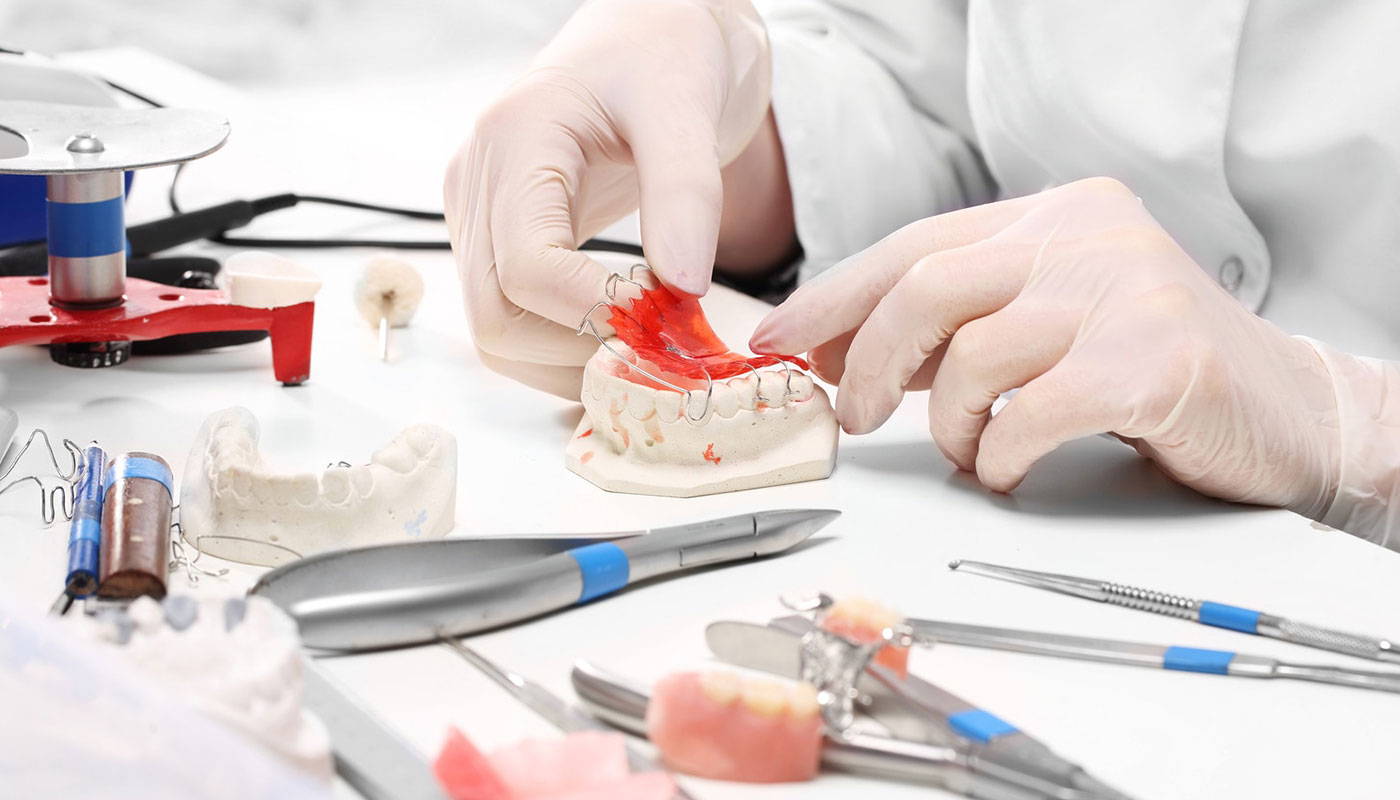Although dentures, in general, are supposed to be long-lasting, resilient and hard, like real, teeth, they’re likely to become damaged with continuous use. This can be an annoying problem and an unexpected expense. Furthermore, eating and even speaking can become troublesome.
Dentures are expensive and might take a long time to be ready. The good news is that it’s possible to repair broken dentures on your own while you wait for a new pair. Keep in mind it should just be a temporary fix. Eventually, you should schedule an appointment at a dental office in Calgary to have your denture repaired.
In the meantime, you can use a commercial denture repair kit containing all the tools needed for repairing your damaged set of fabricated teeth. If you’ve never done this type of repairing before it can be a great idea to get one of these since they come with instructions and tips.
Those are generally sold as an over-the-counter product available at most drugstores. Kits also consist of small single-use epoxy bottles with dental-grade glue, and everything else you need to fix your dentures on your own.
When choosing the glue for fixing your dentures, it’s important to buy a waterproof brand. Market soft glues like school glue, airplane model glue, and ceramic glue are not appropriate for this fix. Those can just make the situation worse.
The best glue is dental-grade resin but it can be costly if you’re on a budget. Instead of super glues or crazy glues, try acrylic resin instead. Since it’s intended for dentists’ use only, it can be expensive. However, this is the most durable type and it’s meant for dental use.
Here are a few tips on how to use resin with no trouble:
- Prepare a clean workspace. Make sure that the area where you’re going to work is completely clean and there’s nothing in your way. Resin will quickly bond to other materials.
- All dentures’ surfaces should be clean and dry before you begin putting on glue.
- Don’t touch it. Touching the resin with your bare hands before it is dry might ruin your denture.
- Be careful with the amount. Don’t over do it, only a small quantity of resin is needed to fix the problem, otherwise, your mouth will look lumpy and bulge outward.
- Don’t put your dentures back into your mouth until the glue is 100% dry.
- Be careful with allergic reactions if you have never tried this glue before since it has direct contact with your mouth and gum tissue.
If you don’t dare to use resin you can use super-glue for a temporary fix in an emergency. It might look like a strong or toxic substance, and you maybe don’t want it going anywhere near your mouth, but it can hold up for a while through a crisis. Sooner or later, you will have to search for new dentures near you and have your teeth professionally fixed.
Other dental products such as implants, braces, bite plates, Invisalign products, and gold teeth can’t be fixed with these types of glue. This is because they’re mostly made out of plastic and react badly with glue. Don’t even consider the use of resin or glue for damaged or loose natural teeth. Glue is only an answer to specific cases.
If you believe you could benefit from dentures, find a dentist that is experienced with dentures in Calgary to help you get back your smile and dental comfort.
Remember, it’s always necessary to ask a dental professional all your questions and check each option available for your problem.

